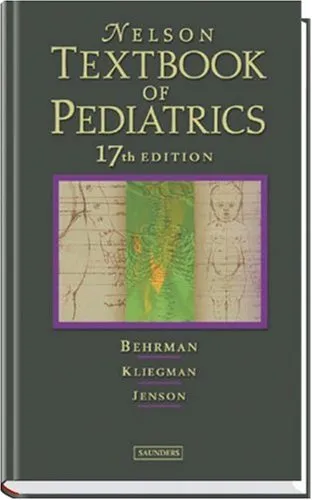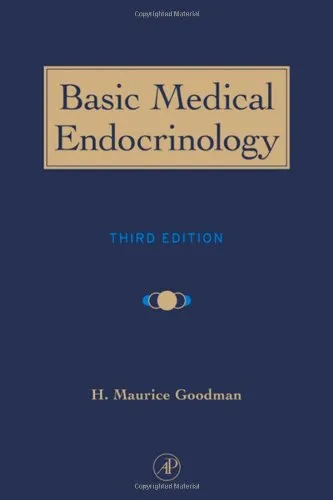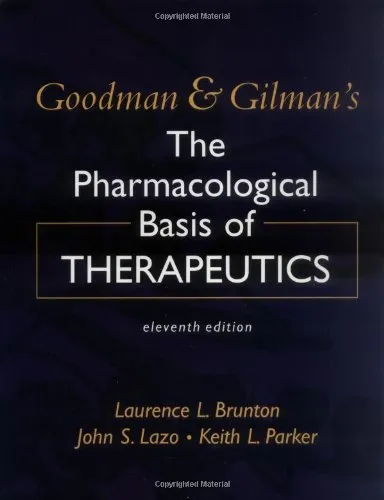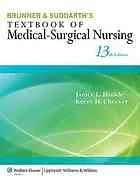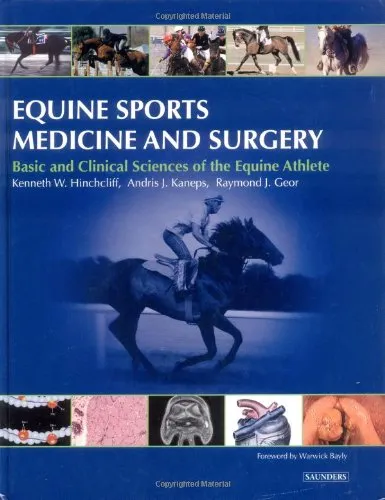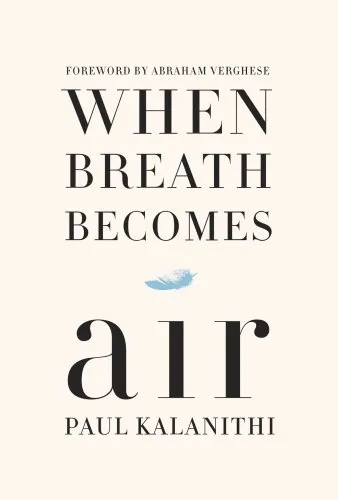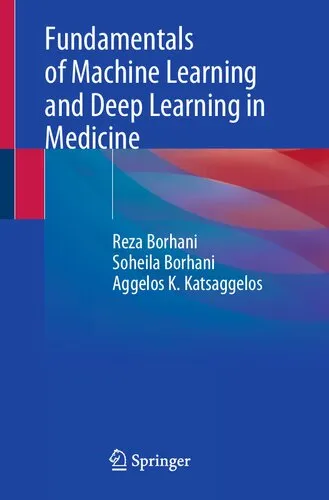Being Mortal: Illness, Medicine and What Matters in the End
5.0
بر اساس نظر کاربران

شما میتونید سوالاتتون در باره کتاب رو از هوش مصنوعیش بعد از ورود بپرسید
هر دانلود یا پرسش از هوش مصنوعی 2 امتیاز لازم دارد، برای بدست آوردن امتیاز رایگان، به صفحه ی راهنمای امتیازات سر بزنید و یک سری کار ارزشمند انجام بدینکتاب های مرتبط:
مقدمهای بر کتاب 'Being Mortal: Illness, Medicine and What Matters in the End'
کتاب 'Being Mortal' نوشته 'عطالله گواندی' نه تنها یک تحلیل عمیق در مورد چگونگی برخورد ما انسانها با دوران پایانی زندگی و بیماریهای شدید است، بلکه یک دعوت به تفکر عمیق درباره معنای واقعی زندگی و مرگ است.
خلاصه تفصیلی کتاب
این کتاب با نگاهی پزشکی و فلسفی به بررسی شیوههای مدرن پزشکی برای مداخله در روند طبیعی پیری و مرگ میپردازد. گواندی در 'Being Mortal' به نقاط ضعف سیستمهای درمانی کنونی در کشورهای توسعهیافته میپردازد که بیشتر بر درمان و نجات از مرگ متمرکز شده و درک مناسبی از فرآیند پیری و نیازهای واقعی بیماران ندارند. از طریق داستانهای واقعی بیماران و تجربیات شخصی خود، نویسنده به ما نشان میدهد که چگونه تحت فشار قرار دادن بیماران به دنبال جراحیها و درمانهای پیچیده میتواند کیفیت زندگی آنها را کاهش دهد و خشونت بیشتری به تجربه زندگیهایشان اضافه کند.
نکات کلیدی
- درک ضرورت ترکیب مراقبتهای پزشکی با ارزشهای انسانی و اخلاقی
- اهمیت بهبود کیفیت زندگی بیشتر از افزایش طول عمر
- تشویق به گفتگوهای باز و روشن درباره مرگ و تصمیمهای مرتبط با انتهای زندگی
- بازنگری در سیاستهای درمانی و قوانین در مورد مراقبتهای پایان زندگی
جملات مشهوری از کتاب
"ما باید خود را از دیکتاتوری بیماری و سرنوشت آزاد کنیم و به دنبال معنا و هدف بزرگتری در لحظات انتهایی زندگی انسانها باشیم."
"پرسش این است آیا ما میخواهیم فقط عمر مردم را طولانیتر کنیم، یا میخواهیم به آنها کمک کنیم تا بهترین زندگی ممکن را در زمان باقیمانده خود داشته باشند؟"
چرا این کتاب اهمیت دارد؟
'Being Mortal' به ما یادآوری میکند که مرگ یک قسمت اجتنابناپذیر از زندگی است و اینکه چگونه میتوانیم این واقعیت را بهعنوان بخشی از طبیعت انسانی بپذیریم. این کتاب به شدت در دانشگاههای پزشکی و میان حرفههای درمانی پرخواننده است. همچنین برای هر کسی که میخواهد درک عمیقتری از موضوعات مرتبط با مرگ داشته باشد، مناسب است. گواندی با نثری ساده و تأملبرانگیز، ما را به تفکر وادار میکند درباره اینکه چه چیزی در پایان عمر اهمیت دارد و چطور میتوانیم با کرامت و آرامش بازنشست شویم.
Introduction
In "Being Mortal: Illness, Medicine and What Matters in the End," Atul Gawande delves into the perplexing challenges of aging and dying in the twenty-first century. This profound exploration is both personal and professional, offering insights from Gawande's own experiences as a surgeon alongside extensive research and interviews with patients, families, and other healthcare professionals. The book confronts the limitations of medicine, which often prioritizes safety and longevity at the expense of meaningful life and humane treatment as we near life's end.
Detailed Summary of the Book
The foundation of "Being Mortal" is built upon two pillars: the way modern medicine approaches end-of-life care and how we, as humans, face our own mortality. Gawande begins by illustrating the evolution of healthcare from a societal focus on community-based elder care to an institutional approach where individuals are treated in hospitals and nursing homes. The author recounts vivid stories of elderly patients who face degrading institutional conditions that focus more on safety than on quality of life.
The book argues that medicine's primary aim should not only be about ensuring health and survival but also about enhancing the quality of life, especially when time may be limited. Gawande shares his father’s journey through cancer, reflecting on the choices faced by those nearing the end of their lives—choices between treatment continuance and living life to its fullest in one's remaining days.
Gawande presents the palliative care model as a solution, aiming to affirm life while accepting death as a normal process. Through a series of compelling narratives, he illustrates how end-of-life conversations can transform the experience of aging and dying, helping individuals prioritize what matters most to them when the ultimate outcomes cannot be controlled.
Key Takeaways
- Medicine should assist not only in prolonging life but in enabling a better quality of life until its end.
- Conversations about end-of-life preferences are critical and can empower patients to make informed decisions.
- There is a burgeoning need to shift from institution-centered care to more personalized, patient-centered approaches.
- Living arrangements for the elderly should focus on allowing independence and human connection.
- Palliative care deserves more recognition and application as it focuses on comfort, dignity, and holistic well-being.
Famous Quotes From the Book
"Our ultimate goal, after all, is not a good death, but a good life to the very end."
"The problem with medicine and the institutions it has spawned for the care of the sick and the old is not just that they are designed to ensure health and survival. The problem is that they too often sacrifice what people care about most."
Why This Book Matters
"Being Mortal" is a crucial read as it questions the traditional healthcare narratives and offers a compassionate view on the natural process of aging. Gawande encourages society to rethink how we handle infirmity, to have difficult conversations about mortality, and to value the quality of life over mere survival. He challenges healthcare providers, patients, and families to discuss and prioritize what is genuinely meaningful for those nearing the end of life, promoting a future where healthcare aligns more closely with human values and dignity.
This book has sparked necessary conversations across medical fields and in families, urging a reconsideration of what it truly means to live well until the end. By blending personal anecdotes with illuminating case studies, Gawande has crafted a narrative that is both enlightening and necessary for anyone looking to understand the complexities of modern medicine and mortality.
دانلود رایگان مستقیم
شما میتونید سوالاتتون در باره کتاب رو از هوش مصنوعیش بعد از ورود بپرسید
دسترسی به کتابها از طریق پلتفرمهای قانونی و کتابخانههای عمومی نه تنها از حقوق نویسندگان و ناشران حمایت میکند، بلکه به پایداری فرهنگ کتابخوانی نیز کمک میرساند. پیش از دانلود، لحظهای به بررسی این گزینهها فکر کنید.
این کتاب رو در پلتفرم های دیگه ببینید
WorldCat به شما کمک میکنه تا کتاب ها رو در کتابخانه های سراسر دنیا پیدا کنید
امتیازها، نظرات تخصصی و صحبت ها درباره کتاب را در Goodreads ببینید
کتابهای کمیاب یا دست دوم را در AbeBooks پیدا کنید و بخرید
1442
بازدید5.0
امتیاز0
نظر98%
رضایتنظرات:
5.0
بر اساس 0 نظر کاربران
Questions & Answers
Ask questions about this book or help others by answering
No questions yet. Be the first to ask!
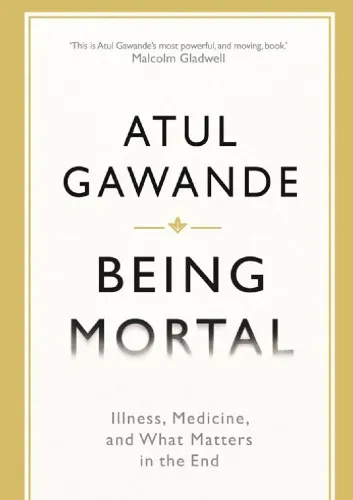

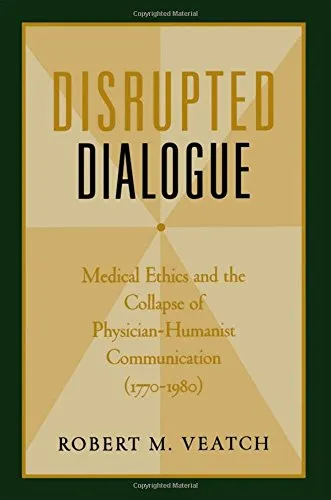
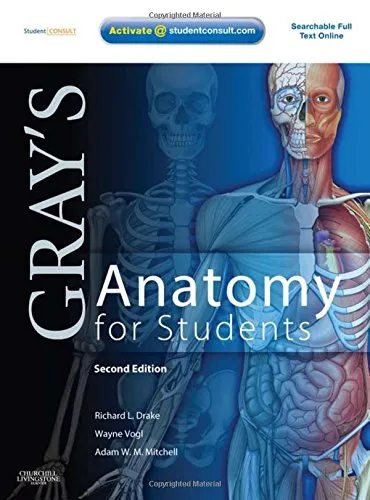

![Gray’s Anatomy for Students [with Student Consult Online Access]](https://s3.refhub.ir/images/thumb/Gray_s_Anatomy_for_Students__with_Student_Con_2727_FngnAl0.webp)
